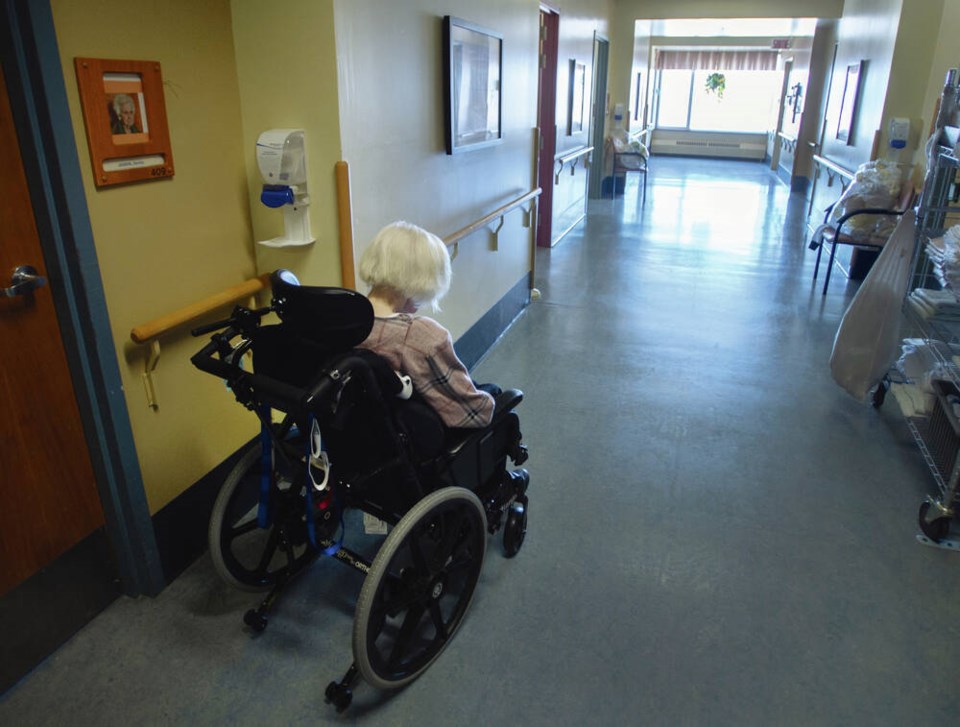Long-term care residents currently allowed just one essential visitor will be able to have a second social visitor once rapid testing is in place in facilities, provincial health officer Dr. Bonnie Henry said Tuesday.
Visiting restrictions that went into effect Jan. 1 are a temporary response to rising COVID-19 cases and staff shortages until rapid testing is in place, which could be this week, said Henry.
Most residents of long-term care are fully vaccinated with boosters, Henry said, “but because they’re older and we know that immunity wanes over time, there’s still a risk and we want to minimize the number of people that are going in and out of long-term care homes during this high transmission period.”
Rapid tests have been used in long-term care and assisted living during outbreaks, as well as by staff awaiting second vaccinations, but the province has been waiting for specific nasal rapid tests for visitors. More than 100,000 have been distributed around the province “for every visitor on a daily basis to be tested before their visit,” Henry said.
With rapid testing, facilities could transition to allowing one “designated social visitor” for each resident, Henry said. “Every resident is expected to have at least one,” she said, although there is no specific criteria for the designated social visitor.
Care facilities determine which visitors are deemed “essential” to a resident’s daily care and well-being, according to standard criteria, but only about 25 per cent of residents have been approved for an essential visitor, which some families complain is because of the arduous process and facility bias.
B.C. Seniors’ Advocate Isobel Mackenzie and Terry Lake, president of the B.C. Care Providers, had asked the province to mandate that every long-term care resident in the province be allowed one designated essential visitor on an ongoing basis.
“It’s not a hospital — you’re not going in there to be fixed or cured,” said Mackenzie. “You’re going there to live so you’ve got to maintain some rights.”
Restrictions on visitors to long-term care facilities were implemented in March 2020, after a majority of COVID-related deaths occurred in seniors homes, and were eased in April 2021. Prior to the appearance of the Omicron variant of COVID-19 and spiking cases, residents were allowed multiple vaccinated visitors.
Henry said seniors in long-term care have been hardest-hit by the pandemic and the social supports visitors provide are essential. “We are committed to making sure we can get back to having your one designated social visitor as well as essential visitors,” she said.
“It is going to be a challenging few weeks, but we have the tools and we have that strong vaccine background that will get us through.”




